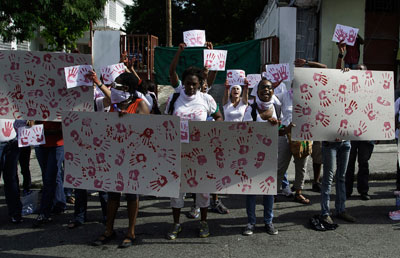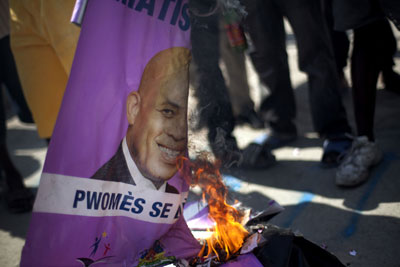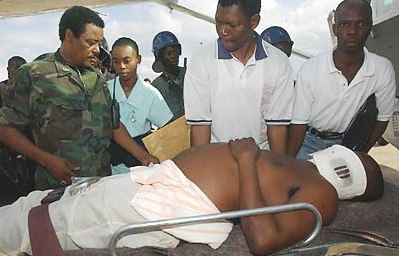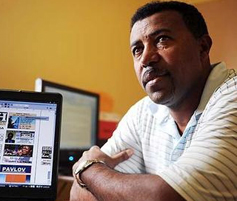
Haitian photojournalist missing in Port-au-Prince
New York, March 28, 2018–Haitian authorities must do everything possible to locate freelance photojournalist Vladjimir Legagneur and conduct a full and transparent investigation into his disappearance, the Committee to Protect Journalists said today.

Press freedom on OGP agenda as authoritarianism rises
There was poignancy to the Paris summit of the Open Government Partnership, as leaders from government and civil society took the stage to defend a political ideology under siege: liberal democracy. French President François Hollande, who amid weak public support announced he will not seek re-election in 2017, called democracy “so fragile and so precious.”…

Duvalier’s death must not mean end of proceedings against dictatorship
The sudden death on October 4 of former dictator Jean-Claude Duvalier and the initial information that he would be honored with a state funeral stunned the victims who had filed suit against Duvalier for massive violations of human rights during his regime. It also created an unexpected ripple effect in the press and the social…

CPJ calls on Haitian authorities to act in Dominique murder
New York, January 21, 2014–The Committee to Protect Journalists welcomes new progress in the case of Jean Lépold Dominique, a prominent Haitian radio journalist who was murdered in 2000, and renews its calls to the Haitian authorities to bring all those responsible to justice.
CPJ urges OAS not to weaken human rights system
Dear OAS Ministers of Foreign Affairs: Ahead of the assembly of the Organization of American States on Friday, the Committee to Protect Journalists urges you to oppose any attempts to debilitate the regional human rights system. The failure of member states to preserve the autonomy and independence of the Inter-American Commission on Human Rights and its special rapporteur on freedom of expression would make citizens throughout the hemisphere more vulnerable to human rights violations and represent a blow to democracy in the Americas.

Was letter to Haiti website just part of Martelly’s theatrics?
As a former entertainer better known as “Sweet Micky,” it is perhaps unsurprising that Haitian President Michel Martelly has been theatrical at times in his dealings with the press. At one media event in October, the President answered a critical question posed by a journalist by telling him, “I curse your mother,” according to press…

Left for dead in Haiti: How CPJ helped one journalist
Ten years ago I joined the staff of the Committee to Protect Journalists to launch the Journalist Assistance program, an initiative, as CPJ board member Gene Roberts describes, developed to establish a standing direct response mechanism for journalists facing threats and attacks. When I left the position in 2009, many people asked me what case…

CPJ’s exiled journalists survey: Behind the numbers
In 2007, my colleague Karen Phillips suggested we do something to mark World Refugee Day. Initially planning to publish a brief statement, I set about reviewing our data for background, checking in with older journalist cases about their current situation and looking broadly for trends to highlight. As the number of cases began counting into…
Haitian radio station destroyed in arson attack
New York, April 26, 2011–The Community to Protect Journalists condemned Thursday’s arson attack on Haitian community radio station Tèt Ansanm Karis and called on local authorities to bring the perpetrators to justice. The blaze destroyed the station’s offices and all equipment and left the northeastern city of Carice without a local radio station.
Attacks on the Press 2010: Americas Analysis
In Latin America, A Return of Censorship By Carlos Lauría As the preeminent political family in the northeastern state of Maranhão for more than 40 years, the Sarneys are used to getting their way in Brazilian civic life. So when the leading national daily O Estado de S. Paulo published allegations in June 2009 that linked José…